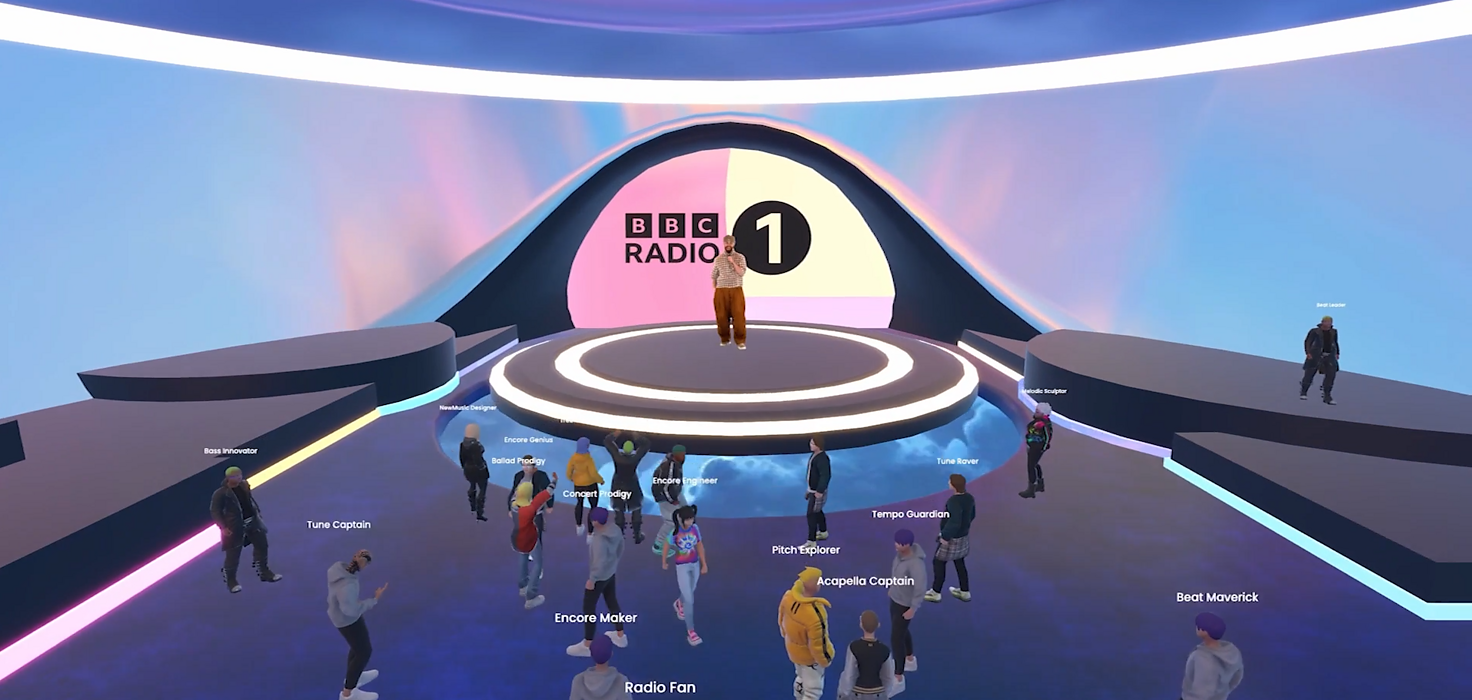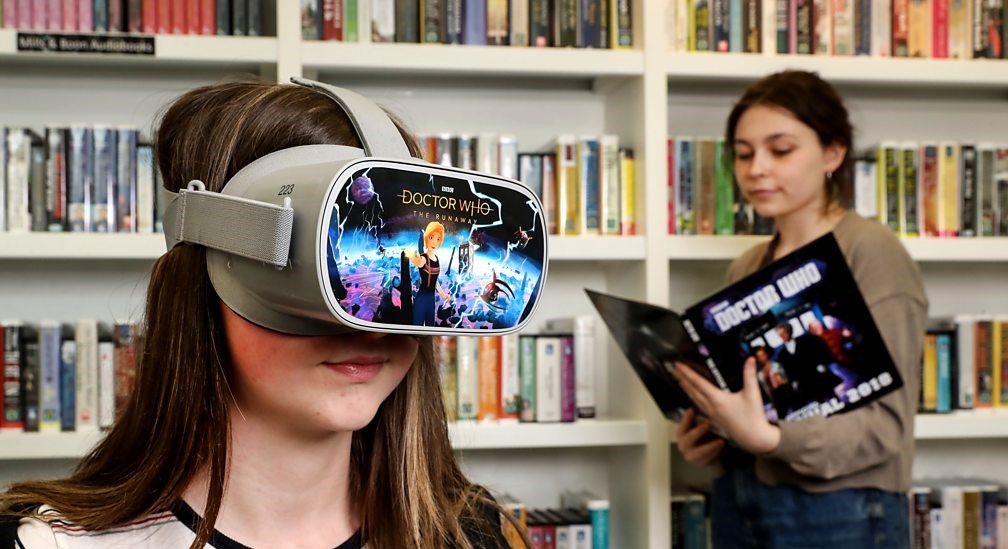A first investment in live metaverse gig company Condense shows the kind of startup collaboration BBC Ventures is seeking.
The BBC was formed at a time when radio was still called ‘the wireless’ and television was a startup technology. But a century later, it’s facing new shifts, and its corporate venture arm has emerged from stealth to help it meet those challenges.
The unit’s first deal is a £500,000 ($640,000) investment, announced last month, in Condense, a British startup with technology that allows physical performances to be recorded and shown live in a virtual metaverse environment.
“We have been looking at growing audience behaviour in immersive spaces, engaging with music events, and it has felt like a space we should be present in,” says Jeremy Walker, the BBC’s head of ventures.
The Condense deal is an example of what the BBC is looking at in order to make sure it survives the next 100 years. Working with startups is a key part.
“We have a large technology division within our business – they are world class experts in the services that we provide today and how we provide those services,” says Walker.
“But there is an awful lot more disruption that is increasingly affecting the media space, and we need the ability to access those capabilities quickly and cost-effectively without spinning up large in-house teams that are dedicated to tackling one or other of those challenges. There are just too many challenges to do a good job of it.”

The BBC employs about 21,000 people and broadcasts across television, radio and online, in addition to running one of the world’s largest news organisations and an international commercialisation division. While it is a public body, it’s funded by an annual licence fee paid by anyone who owns a TV. The problem is fewer people own TVs these days, particularly younger viewers who’ve become used to going to streaming platforms first. That means looking to new areas.
“What we are not doing is investing in content, there is a whole arm of the BBC that’s focused on that, they do that very well and we’re lucky to have them around,” Walker (left) says.
Instead, BBC Ventures is targeting technology that will help make its content more accessible or open up new ways for its programming to be experienced.
“Immersive is a logical space for us, interactive is a logical space for us, I think there are possibilities to explore around Web3,” he says. “We’re looking at the different branches of generative content creation and synthetic content as spaces that are going to be important strategically to the BBC in time.”
BBC Ventures is investing off balance sheet and there is no set budget, with investments being made opportunistically. It has has four or five people working on it to what Walker refers to as “a reasonable degree of full-time” but is pulling in help from several parts of the BBC.
The unit also benefits from an experienced internal R&D team within the BBC that can advise on what technology is emerging and what might be disruptive, and is talking to other parts of the organisation to help them plan ways they can use technology in the future.
Being part of a large organisation brings some challenges, however.
“The BBC has a long history of partnering with startups and we’ve been doing that literally for decades. But doing so in a way that is appropriately founder-friendly is not something that has been part of our guiding processes to date,” Walker concedes.
So, when BBC Ventures was set up, it needed to make sure there was a clear path that startups could navigate so that it could bring those partnerships to market.
The unit had to think about solving a lot of those bureaucracy problems upfront, and it hasn’t been straightforward – it took two years after the unit’s launch to announce the first investment. But when the deals involve long-term partnerships, they have to be structured more carefully than a traditional VC deal, Walker says, and he’s happy with how things have progressed.
“It took quite a while for us to get to a place where we were really clear on how we might do these deals,” he adds. “But now that we’ve done that, I would hope that we’ll be in a position to move much faster and more fluidly next time around.”
How a debut investment is bringing a flagship radio station into the metaverse
The investment in Condense is a way for the BBC to explore the appetite for virtual concerts. The technology is still visually basic, but it allows people to experience a show online with each other in real time despite being on opposite sides of the country (or the world, for that matter), the same way they would interact in an online multiplayer game.
Immersive gigs gained some traction during the pandemic, with huge-selling artists like Travis Scott or Ariana Grande collaborating on online concerts within Fortnite that pulled in millions of viewers.
Condense is taking the idea a step further by broadcasting immersive live gigs in partnership with the BBC’s flagship radio station, Radio 1.
“An awful lot of what goes on there has to date been elaborate, pre-recorded, live-scale concerts for multiplatinum-selling artists,” Walker says. “And that takes an awful lot of pre-production work. What particularly attracted us to Condense was the ability to do ‘live’, which is critical from a BBC proposition standpoint.”

On the other side, Condense gets to benefit from a high level of expertise within its newest investor, explains CEO Nick Fellingham.
“There’s obviously the investment element to it but there is also a partnership,” he says. “And that partnership involves us working with their content teams, their production teams and their R&D teams in developing our product.
“The BBC are leaders globally across a number of different media expertise areas, like streaming, video distribution, lots of different things in broadcast innovation, radio and even immersive technology. And so, to be able to feed some of that expertise back into Condense is super valuable.”
BBC Ventures is looking to form more partnerships like this with startups that bring new technologies that can be introduced cost-effectively and then potentially expanded. Condense’s offering may concentrate on music for now, but Walker says it could end up being used to broadcast a far wider range of interactive live programming.
“We expect that wave of technological change and audience behaviour to sweep through different genres and different formats as media evolves, as it has done with the advent of other form factors previously,” he says.
“And so, while we are very much focused this week and next week on the things that we’re doing in music, we’re also actively looking at how this might cascade into other parts of our existing business and other genres that are important to us strategically over time. And there is real appetite across our business for exposing what might be possible with Condensed capabilities to those other departments. As we can surface those opportunities, we will.”
Credit: Source link
